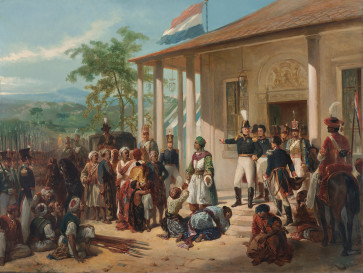Popular Reads
Top Results
Can't find what you're looking for?
View all search resultsPopular Reads
Top Results
Can't find what you're looking for?
View all search resultsBogor MUI objects to contract marriages
The Bogor branch of the Indonesian Ulema Council (MUI) has issued an edict that considers contract-based or unregistered marriages as haram — strictly forbidden under Islamic law — a decision which dealt a blow to Arab visitors who participate in such marriages in Puncak, a popular tourist area
Change text size
Gift Premium Articles
to Anyone
T
he Bogor branch of the Indonesian Ulema Council (MUI) has issued an edict that considers contract-based or unregistered marriages as haram — strictly forbidden under Islamic law — a decision which dealt a blow to Arab visitors who participate in such marriages in Puncak, a popular tourist area.
Bogor MUI chairman A. Mukri Aji said the decision came after a majority of ulemas who were well-versed in fikh (religious law) agreed that contract-based marriages, also known as mut’ah, violated basic Islamic principles.
“The contract-based marriages only bring negative impacts to women and the future of their children because they do not comply with the Indonesian law that stipulates that all marriages should be registered with the religious affairs office,” Mukri said as quoted by kompas.com.
Contract-based marriages are widely known to be practiced in Puncak.
Locals are aware that the method has long been used by tourists coming from the Middle East.
The peak season for Arab visitors to the Puncak area is May through July.
Not surprisingly, all the local shops, salons, money changers, travel agencies, villas, rental cars and car wash stations use Arabic characters for their names and notices.
Former vice president Jusuf Kalla once jokingly said that the Arab tourists coming for unregistered marriages would result in good-looking offspring and future stars of the television soap operas that are often populated by actors of either Eurasian or Arab descent.
At that time, Kalla suggested promoting Puncak to tourists from Middle Eastern countries. He later retracted his statement, saying it had been misunderstood.
The Arab tourists who come to Puncak — which they refer to as jabal (mountain) — are generally understood to be coming for “dates” with Indonesian women.
In fact, contract marriage arrangements can begin as soon as the Arab visitors arrive at Soekarno-Hatta International Airport in Jakarta.
Mukri said that children born from contract marriages will not be eligible to apply for birth certificates because they have no official record of their parent’s marriage.
Contract marriages can also rob children of their rights to inheritance.
There are also problems with the rituals of contract marriages, which could undermine their validity, Mukri said.
“What’s more, we learned that in contract marriage ceremonies, the witnesses proposed by the bride do not come from her family or her actual guardians. Based on sharia, this is illegitimate,” he said.
In Islam, a union is deemed legal only when certain conditions are met, including payment of dowry, the presence of adult witnesses and the consent to marriage given by the bride’s father or a guardian.
Sharia expert from Sunan Kali-jaga State Islamic University in Yogyakarta, Ruhaini Dzuhayatin, supported the MUI’s decision, saying that contract marriages in Puncak were only guises for prostitution.
“It’s good that the MUI has called it haram because those contract marriages in Puncak are only attempts to legalize prostitution,” Ruhaini told The Jakarta Post on Monday.
She said that the tradition of mut’ah in Islam, mainly practiced by Shiite Muslims, was only allowed when Muslims were striving in a noble cause such as holy war.
“However, the context here in Indonesia is totally different,” Ruhaini said. “Here, tourists from the Middle East book Indonesian girls only for pleasure.”
Ruhaini said that present-day Shiites have begun to distance themselves from mut’ah.
“The perspectives on marriage and women’s rights have changed,” she said. (awd)










